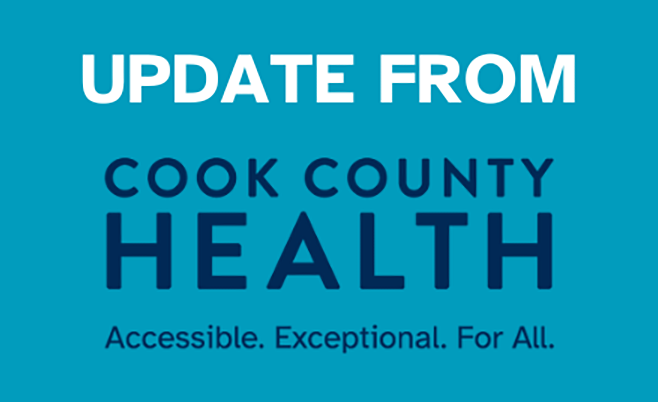Incorporating smoking cessation services into routine healthcare visits can have a positive impact on helping people quit smoking according to a new study by clinicians at the Cook County Health (CCH).
The study, published online in the Journal of Community Health, evaluated smokers who were exposed to a guideline-based health education program delivered during visits to primary care, specialty clinics, urgent care or during hospitalization. The sustained smoking cessation rate was 9.3 percent compared to the national quit rate of 6.2 percent reported by the National Health Interview Survey (NHIS).
The researchers point out that the 9.3 percent success rate is even more encouraging considering the majority of the CCH patient population is low-income and minority, two factors that are considered higher-risk for a poor outcome.
“The unaided smoking cessation rate in persons with Medicaid is around three-percent. There are well-documented smoking related disparities based upon race/ethnicity, poverty and insurance status. Numerous psychosocial stressors on this population makes it harder to quit,” said study author Anne J. Krantz, MD, medical director of the Healthy Lungs Initiative at John H. Stroger Jr. Hospital of Cook County.
According to the Centers for Disease Control and Prevention, American adults who are uninsured or on Medicaid smoke at rates more than double those for adults with private health insurance or Medicare. Data from the 2014 NHIS show that about 28 percent of uninsured adults and 29 percent of Medicaid recipients currently smoke. By contrast, about 13 percent of adults with private insurance and 12.5 percent of those on Medicare currently smoke.
Dr. Krantz attributes the success of the program to reaching people during routine clinic and hospital visits, rather than expecting them to come back for classes or education.
“This is more than a physician telling you to quit. Our lung health counselors follow a guideline-based health education program that provides personalized counselling and education to maximize the patient’s chance of a successful quit attempt,” said Dr. Krantz.
The health educators recommended all patients stop smoking. For patients who expressed a willingness to quit, the health educators helped the patient develop a personalized quit plan that incorporated action-oriented strategies, substitutes for smoking urges, coping with temptations, and a commitment to create a smoke-free home. The educators arranged a proactive follow-up with the Illinois Tobacco Quitline for outpatients, and offered four follow-up telephone calls over three months for in-patients.
For those patients who were not willing to quit, the educators discussed the benefits, barriers, and motivation to stop smoking, and provided written educational materials and a reactive referral to the Illinois Tobacco Quitline.
The retrospective analysis included 755 patients who had at least two health educator contacts delivered during routine clinical care, the latter contact 12-18 months after the baseline. The primary outcomes are self-reported 12-month sustained smoking cessation at the 12-18 month contact. The cohort is predominantly minority smokers (African-American 69% and Latino 15%) and uninsured (70%) or Medicaid (13%).
The Healthy Lungs Initiative is a multi-year program of the Cook County Health. Trained health educators offer smoking cessation counseling in multiple health care and social service settings throughout Cook County.
Contact:
Kim Waterman, Communications Manager
312.864.3912 (o)
312.405.7474 (c)
[email protected]

